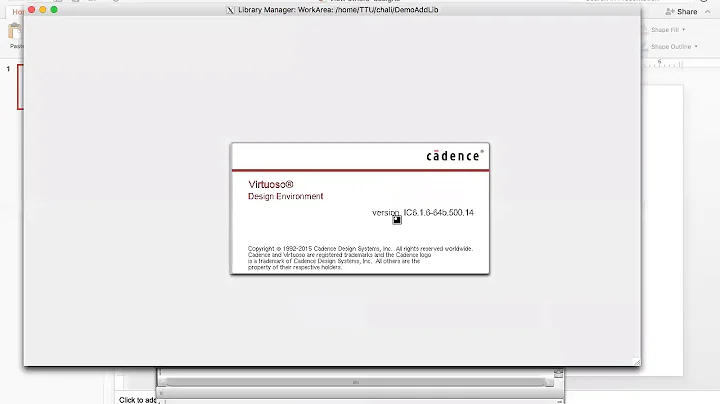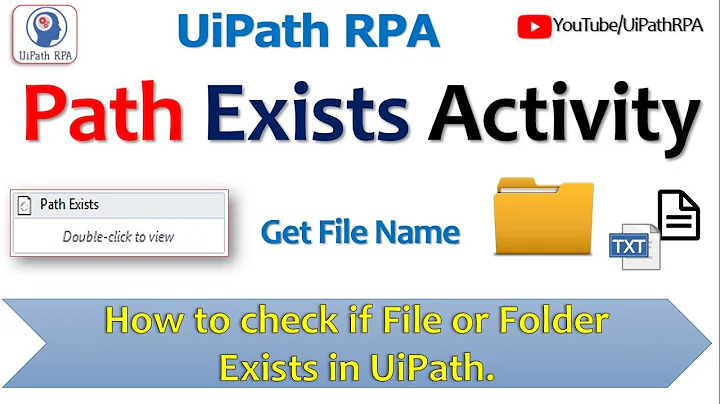Find out if library is in path
Solution 1
ldconfig can list all the libraries it has access to. These libraries are also stored in its cache.
/sbin/ldconfig -v -N will crawl all the usual library paths, list all the available libraries, without reconstructing the cache (which is not possible if you're a non-root user). It does NOT take into account libraries in LD_LIBRARY_PATH (contrarily to what this post said before edit) but you can pass additional libraries to the command line by using the line below:
/sbin/ldconfig -N -v $(sed 's/:/ /g' <<< $LD_LIBRARY_PATH)
Solution 2
You can compile a simple test program with gcc and link your library. Then you can check the used libraries with ldd. I use something like this:
echo "int main(){}" | gcc -x c++ -Wl,--no-as-needed -lmylib - && ldd a.out | grep mylib
-Wl,--no-as-needed prevents the linker from discarding the library, because no symbols from the library are used.
Solution 3
Globally substitute (space) for : with LD_LIBRARY_PATH
/sbin/ldconfig -N -v $(sed 's/:/ /g' <<< $LD_LIBRARY_PATH)
Solution 4
I implemented such a script here:
#!/usr/bin/env python3
"""
Like `type` but for libs.
"""
from __future__ import print_function
from argparse import ArgumentParser
from glob import glob
import sys
import os
def parse_ld_conf_file(fn):
paths = []
for l in open(fn).read().splitlines():
l = l.strip()
if not l:
continue
if l.startswith("#"):
continue
if l.startswith("include "):
for sub_fn in glob(l[len("include "):]):
paths.extend(parse_ld_conf_file(sub_fn))
continue
paths.append(l)
return paths
def get_ld_paths():
# To be very correct, see man-page of ld.so.
# And here: http://unix.stackexchange.com/questions/354295/what-is-the-default-value-of-ld-library-path/354296
# Short version, not specific to an executable, in this order:
# - LD_LIBRARY_PATH
# - /etc/ld.so.cache (instead we will parse /etc/ld.so.conf)
# - /lib, /usr/lib (or maybe /lib64, /usr/lib64)
LDPATH = os.getenv("LD_LIBRARY_PATH")
PREFIX = os.getenv("PREFIX") # Termux & etc.
paths = []
if LDPATH:
paths.extend(LDPATH.split(":"))
if os.path.exists("/etc/ld.so.conf"):
paths.extend(parse_ld_conf_file("/etc/ld.so.conf"))
else:
print('WARNING: file "/etc/ld.so.conf" not found.')
if PREFIX:
if os.path.exists(PREFIX + "/etc/ld.so.conf"):
paths.extend(parse_ld_conf_file(PREFIX + "/etc/ld.so.conf"))
else:
print('WARNING: file "' + PREFIX + '/etc/ld.so.conf" not found.')
paths.extend([PREFIX + "/lib", PREFIX + "/usr/lib", PREFIX + "/lib64", PREFIX + "/usr/lib64"])
paths.extend(["/lib", "/usr/lib", "/lib64", "/usr/lib64"])
return paths
def main():
arg_parser = ArgumentParser()
arg_parser.add_argument("lib", help="Name of the library (e.g. libncurses.so)")
args = arg_parser.parse_args()
paths = get_ld_paths()
for p in paths:
fn = "%s/%s" % (p, args.lib)
if os.path.exists(fn):
print(fn)
return
print("Did not found %r in %r." % (args.lib, paths), file=sys.stderr)
sys.exit(1)
if __name__ == "__main__":
main()
Related videos on Youtube
nbubis
Updated on September 18, 2022Comments
-
 nbubis over 1 year
nbubis over 1 yearAssuming I want to test if a library is installed and usable by a program. I can use
ldconfig -p | grep mylibto find out if it's installed on the system. but what if the library is only known via settingLD_LIBRARY_PATH?In that case, the program may be able to find the library, but
ldconfigwon't. How can I check if the library is in the combined linker path?I'll add that I'm looking for a solution that will work even if I don't actually have the program at hand (e.g. the program isn't compiled yet), I just want to know that a certain library exists in
ld's paths.-
 Admin almost 8 yearsYou could use
Admin almost 8 yearsYou could useldd <binary>to check if all libraries linked are in the path. Maybe there is a more elegant way. -
 Admin almost 8 years@Thomas I think you should make an answer of your comment.
Admin almost 8 years@Thomas I think you should make an answer of your comment.lddserves exactly this purpose. -
 Admin almost 8 years@Thomas - but what if I the program isn't compiled yet, and that library is needed for compilation?
Admin almost 8 years@Thomas - but what if I the program isn't compiled yet, and that library is needed for compilation? -
 Admin almost 8 years@Igeorget - see my edit / comment
Admin almost 8 years@Igeorget - see my edit / comment -
 Admin almost 8 years@nbubis: when you need the library for compilation, you normally have to use
Admin almost 8 years@nbubis: when you need the library for compilation, you normally have to useLIBRARY_PATHenvironment variable which is looked up e.g. by thegcccompiler. TheLIBRARY_PATHenvironment variable also has a colon seperated list of directories.
-
-
 schily almost 8 yearsldconfig is a tool from the 1980s that was given up in the 1990s. For this reason,
schily almost 8 yearsldconfig is a tool from the 1980s that was given up in the 1990s. For this reason,ldconfigis not portable as it only applies to implementations that are based on the SunOS-4.0a.outbased dynamic linker from 1987. -
 nbubis almost 8 yearsHow does that help listing libs which are only on LD_LIBRARY_PATH? I guess I could write a script to parse that and then read that through ldconfig, but it seems a bit like an over kill.
nbubis almost 8 yearsHow does that help listing libs which are only on LD_LIBRARY_PATH? I guess I could write a script to parse that and then read that through ldconfig, but it seems a bit like an over kill. -
lgeorget almost 8 years@nbubis you can always pass the libraries in LD_LIBRARY_PATH to ldconfig. Like
/sbin/ldconfig -N -v $(sed 's/:/ /' <<< $LD_LIBRARY_PATH)not too much of an overkill to my taste. -
lgeorget almost 8 years@schily Really? It works pretty well with ELF libraries as far as I can tell. And it's still used, ld.so relies on the cache built by ldconfig.
-
 schily almost 8 yearsTypo fix: change
schily almost 8 yearsTypo fix: changethe tree stoogestothe three stooges.




